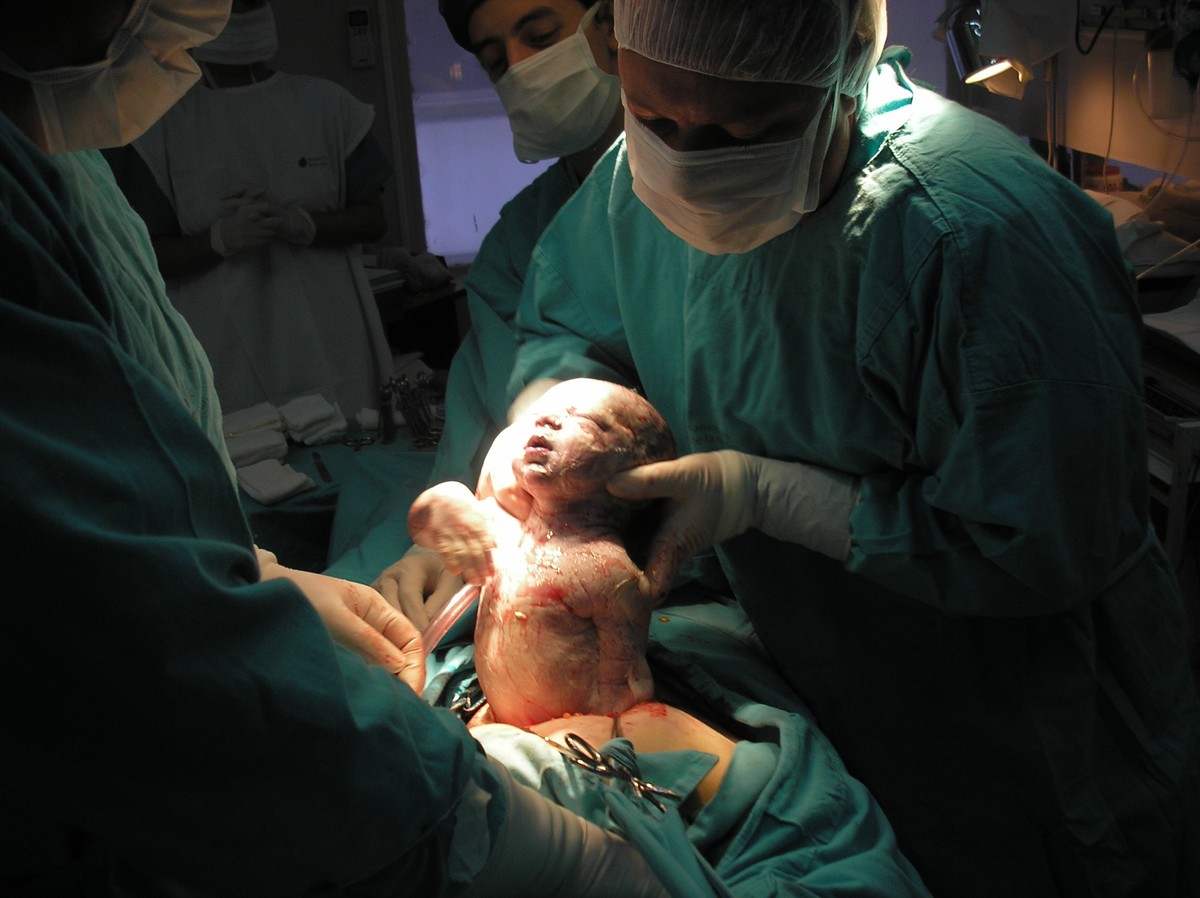Fragile balance
2014/02/01 Galarraga Aiestaran, Ana - Elhuyar Zientzia Iturria: Elhuyar aldizkaria

According to Miren Basaras, a professor of microbiology at UPV, the first factor that influences the microbiome is the way to be born: "Children born by natural childbirth and those born by C-section do not have the same microbiome."
In fact, studies like the one published in 2013 by the International Journal of Obesity have revealed that those born with Caesarean section are more likely to develop obesity and certain diseases: "The impact of cesarean section on offspring overweight and obesity: a systematic review and meta-analysis". The authors analyzed data from China, Denmark, the United States, the Netherlands and Brazil, and concluded that those born with C-section had a risk of obesity or obesity 33% higher than the rest.
Basaras has affirmed that lactation also has a great influence: "It has been observed that breast-fed children contain more Lactobacillus and Bifidobacterium than others, as well as other anti-inflammatory bacteria such as Faecalibacterum."
Prebiotics and probiotics
By moving from milk to other foods, Basaras has highlighted the influence of fiber: "In addition to the amount of fiber, quality also influences the microbiome. For example, foods containing lignan (pumpkin seeds, broccoli...) are beneficial because they help to grow anaerobic bacteria. These bacteria have been linked to protection against colon and breast cancers, which reduce the risk of developing them." Basaras has pointed out that the fruits and fiber of the big seeds also protect from cancer, but that its effect is not "so evident".
Due to their influence on the microbiome, the active ingredients that contain food are called prebiotics. Foods that contain bacteria are originally called probiotics. Among them, the best known is yogurt. However, Basaras has warned of the convenience of rigorously studying what advertising says, since not all products that claim their beneficial effect have or not for the reason they suggest.
An example of this is Danone's Actimel, which claims to strengthen the immune system and seems to be due to the bacteria it has. That's what it claimed in the initial advertising. However, a small asterisk appearing on the label clarifies that this effect is due to vitamin B6.
Vitamin B6, however, is not the specificity of Actimel, since the rest of yoghurts and many other foods contain as much or more vitamin B6 as Actimela. Therefore, believing that it was advertising confusing, the European Union forced Danone to change the label of Actimel. Thus, it no longer indicates that the immune system is reinforced by bacteria, but has replaced the explanation associated with the asterisk.
From antibiotics to transplants
Among the substances with harmful effects on the microbiome are antibiotics. Antibiotics are designed to fight harmful bacteria for health, but some of them also affect bacteria that benefit us.
For example, in a study conducted in 2012 by the Spanish Higher Council for Scientific Research (CSIC), we analyzed how betalactanic antibiotics (such as penicillin) affected the composition and functioning of the microbiome and it was shown that in eleven days the diversity of microorganisms decreased dramatically. In addition, significant alterations were detected in the production of proteins and other functions.

According to the authors of this study, the influence of antibiotics on the ecosystem of intestinal microorganisms and on individual metabolism is greater than previously thought, but, in turn, they suggest that these effects can be reversible. However, sometimes it seems that the damage can last a long time, and it is that, according to Basaras, "many studies have found that the ingestion of antibiotics in early ages is related to the risk of suffering autoimmune diseases."
In this sense, Basaras has highlighted the importance of the type of bacteria that live in the intestine: "The bacteria that live in our intestine are anaerobic, but if by antibiotics, diet or other causes we lose them, others are those that occupy their place, the facultative anaerobics. When this happens, we lose the anti-inflammatory protection provided by anaerobics, which facilitates the development of some inflammatory diseases: some cancers, diabetes, atopy..."
But Basaras has also explained the opposite case, that is, its use to cure bacteria: "One of the most serious infections that occur in hospitals is the bacterium Clostridium difficile. It produces violent diarrhea and eliminates almost all intestinal microorganisms. For to combat it, the mycodrioma transplants have been tested and good results are being given".
As the relationship between the microbiome and health is clarified, Basaras hopes that the doors to health and new treatments will open.

Gai honi buruzko eduki gehiago
Elhuyarrek garatutako teknologia






